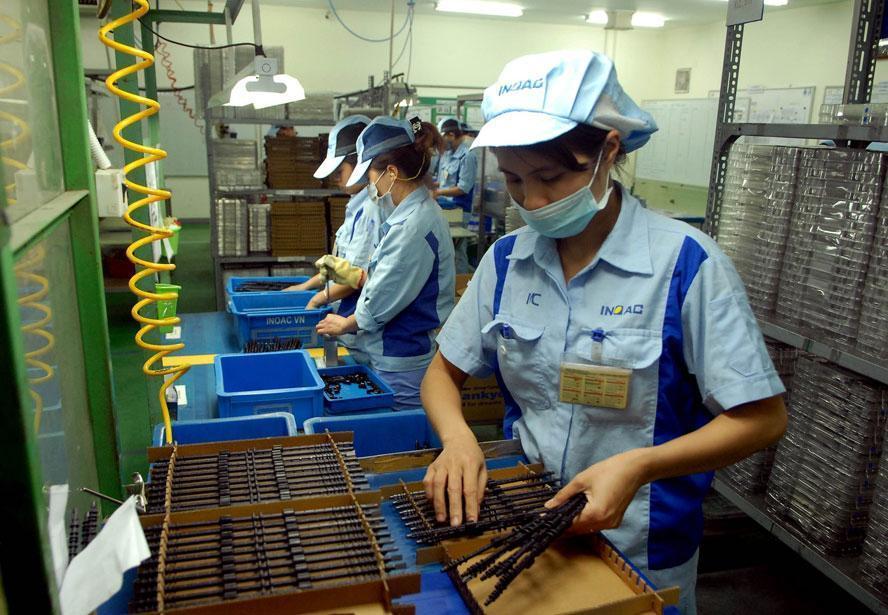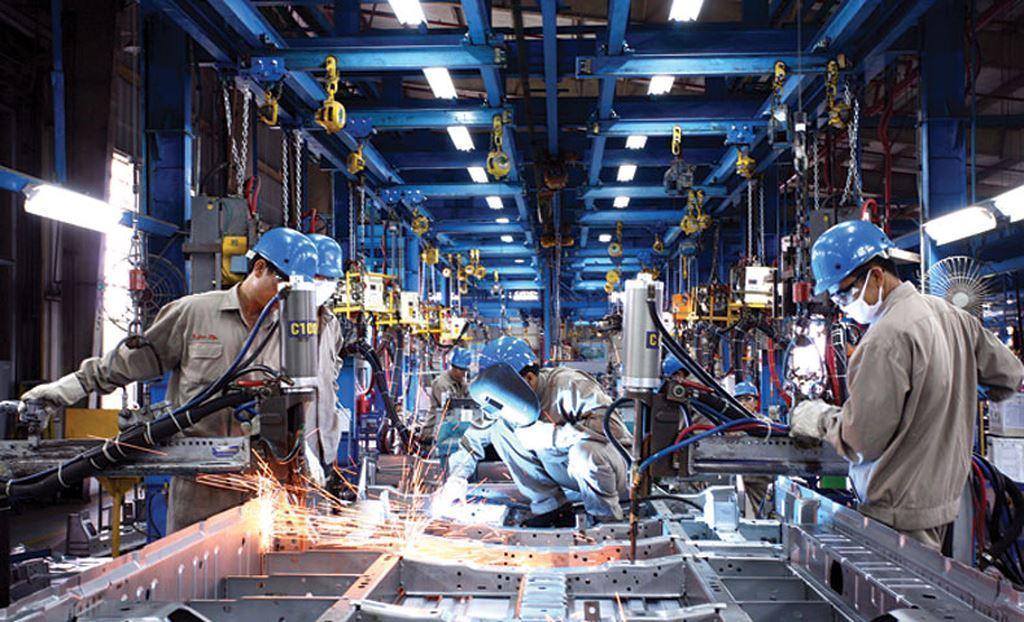Vietnam’s private enterprises grow slowly
Many Vietnamese tycoons regret that the largest beer company in Vietnam, the Saigon Alcohol Beer and Beverage Joint Stock Corporation (Sabeco), has fallen into the hands of Thai investors.
When the state divested capital from Sabeco, many Vietnamese enterprises wanted to acquire it, but no Vietnamese corporation qualified to enter the final list.
Small and weak
Many Vietnamese tycoons regret that the largest beer company in Vietnam, the Saigon Alcohol Beer and Beverage Joint Stock Corporation (Sabeco), has fallen into the hands of Thai investors. When the state divested capital from Sabeco, many Vietnamese enterprises wanted to acquire it, but no Vietnamese corporation qualified to enter the final list.
Over 30 years of development, Vietnamese private enterprises have not yet become a powerful force, an important driving force for the country’s economic growth as expected.
According to the Ministry of Planning and Investment, of Vietnam’s total 800,000 enterprises, there are only about 17,000 large-scale private enterprises and 21,000 medium-sized enterprises. The large private enterprises in Vietnam have an average market capitalization of about $200 million, compared to $1.2 billion of those in the Philippines, $1.07 billion in Singapore, $835 million in Thailand, $809 million in Indonesia and $553 million in Malaysia.
After more than 30 years of reform, Vietnam still has not had a generation of world-class enterprises. This is one of the biggest challenges right now. The limited capacity of private businesses will affect their ability to improve productivity and increase scale to compete in international markets, said Vu Tien Loc, Chairman of the Vietnam Chamber of Commerce and Industry (VCCI).
A series of free trade agreements (FTAs) have been signed, or “expressways” have been opened, but most Vietnamese private firms cannot access these “highways” yet.
In the European Union (EU), according to Mr. Giorgio Aliberti – Ambassador of the European Union to Vietnam – small and medium enterprises account for 90% of the total number of businesses in the EU. They attract two-thirds of the total number of employees, contribute up to 90% of the export value, and are an important driving force of the economy. There are many family businesses that have grown into important empires. There are small and medium enterprises that are the champions of export, such as Novatis – the world’s No. 1 company in medical equipment, whose products are exported everywhere.
Meanwhile, the number of small-sized private enterprises rising to medium size and those from medium size rising to large size in Vietnam is very small.
According to VCCI, there has been a strong decline in medium and large sized private enterprises in the last five years. This has made Vietnam an economy of small and micro enterprises, with a rate of approximately 96%, of which, microenterprise accounts for the majority, up to nearly 67%. Among micro enterprises, 42% have annual revenue of less than VND1 billion.
Promoting reform

Human resources of private enterprises are also weak. Many managers of Vietnamese private enterprises only graduated from high school, started a business career from a household or moved up as an employee in state-owned enterprises.
According to a recent survey by the VCCI, up to 55.63% of the bosses of small and medium businesses have an intermediate or lower level of education. As for the workforce, up to 75% have not received any technical or professional training.
Regarding the EU-Vietnam Free Trade Agreement (EVFTA), according to a survey, up to 70% of small and medium enterprises in the EU said they would benefit immediately, while 30% said they would benefit from this agreement after 3-5 years. For Vietnam, small and medium-sized businesses face the risk of not catching up with this opportunity.
Experts say that the business environment in Vietnam is still unfavorable. The most pressing issue is discrimination. According to a recent VCCI survey, 39.5% of private enterprises said that local officials still prioritize attracting foreign investment and state-owned enterprises rather than developing the private sector.
According to VCCI, barriers to the development of private enterprises include the legal burden, access to finance and land, lack of transparency, and informal costs. These factors have improved year by year, but have not really contributed to creating international-scale enterprises.
Today, in developed countries, the private sector often contributes over 85% of GDP, which is the foundation to ensure the strong development of the economy. Any rich and powerful country has a team of powerful entrepreneurs and businesses. It is the leading corporations and private companies in industrialized countries that play the leading role in turning the country into economic powers.
According to experts, to become a developed country by 2045, Vietnam’s minimum income per capita must reach at least $20,000 per year. With a current per capita income of about $3,000/year, Vietnam must achieve a GDP growth rate of 7.5-8% per year for the next 25 consecutive years. This goal cannot be realized without the important contributions of private enterprises.
Experts also said that it is necessary to further reform the business environment to reach a fair treatment between private and FDI enterprises and state-owned enterprises.
Implementing transparent and effective policies; supporting the development of small and medium enterprises, expanding market participation and promoting fair competition; supporting innovation, technology modernization and human resource development … are extremely important solutions, to create a team of strong private enterprises. Then, Vietnam can become a developed country by 2045.
Tran Thuy
Source: https://vietnamnet.vn/en/feature/vietnam-s-private-enterprises-grow-slowly-726575.html


 English
English




